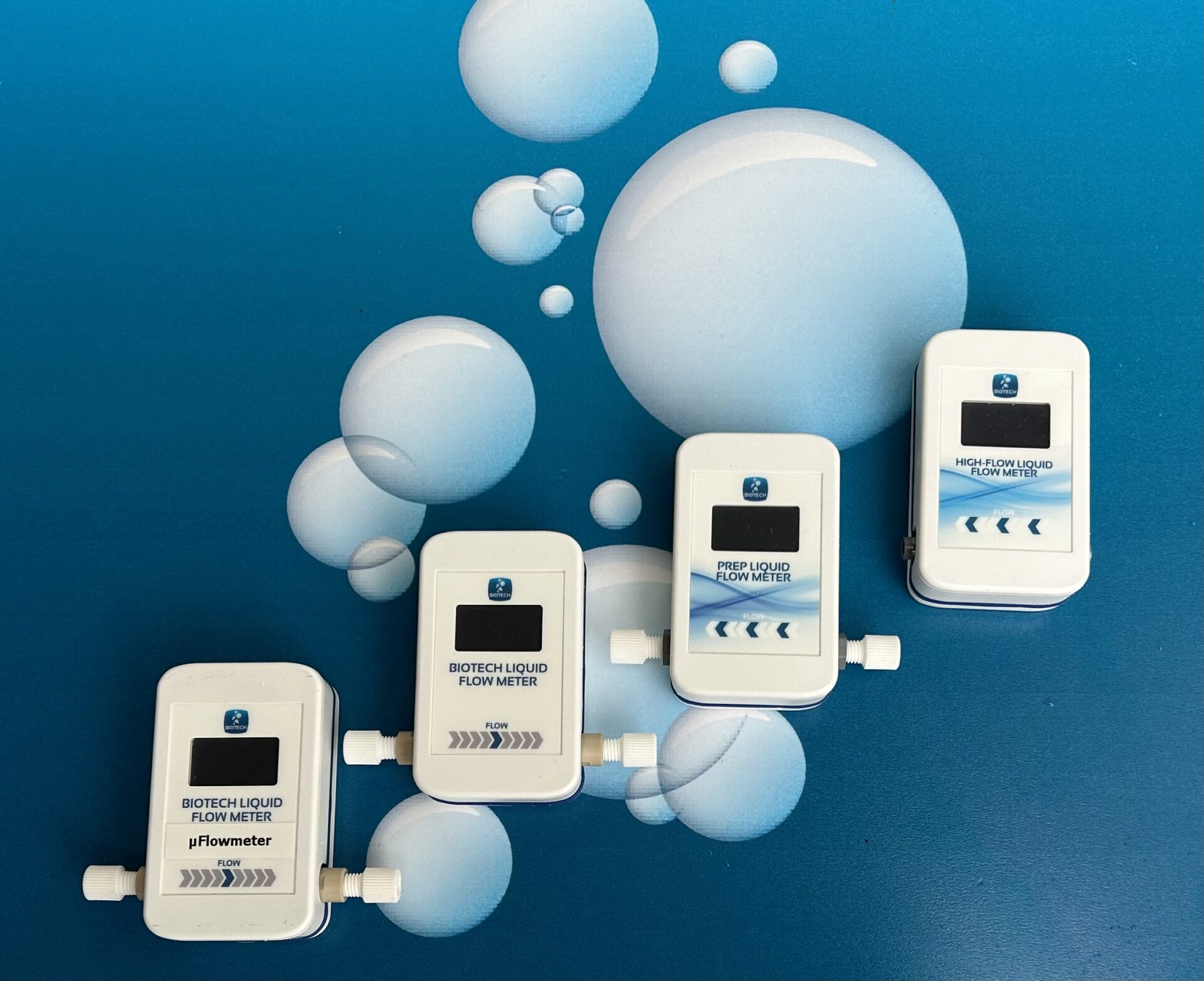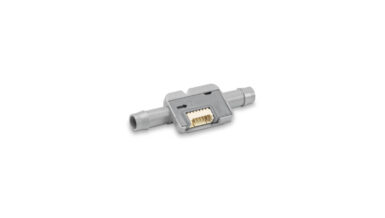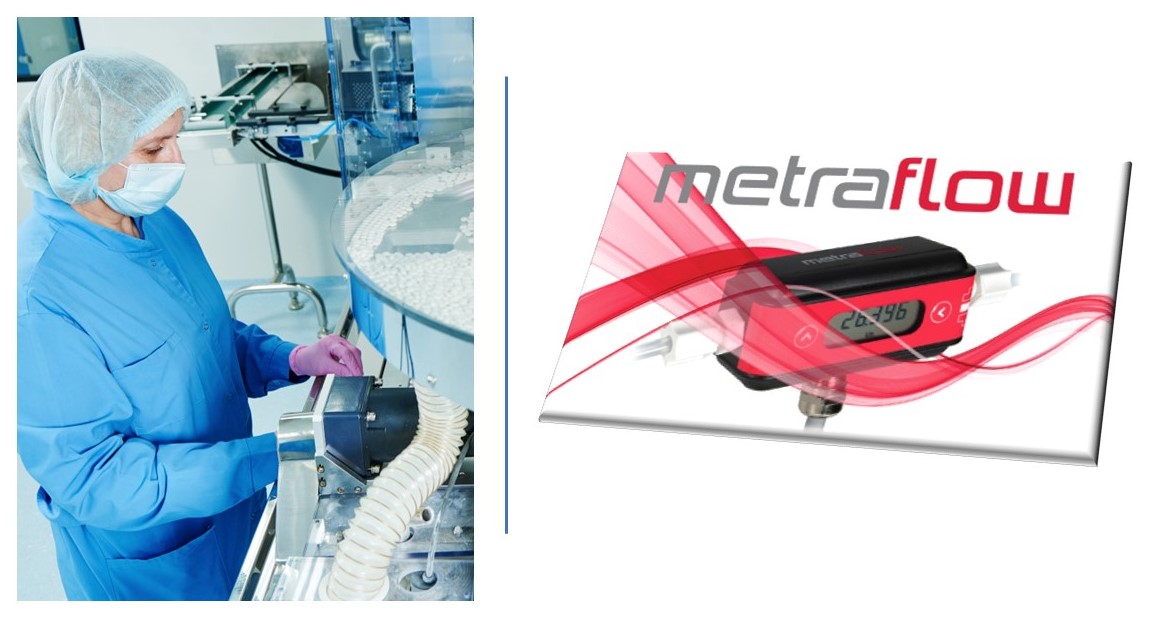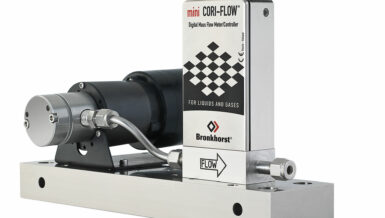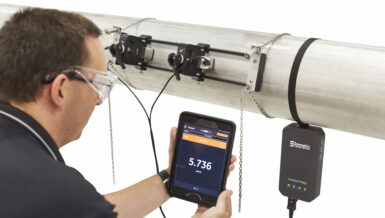Measurement technology must keep pace with these developments and offer suitable solutions, for example with particularly compact measuring devices and correspondingly small process connections.
Pharmaceutical actives are becoming more and more powerful; even very small quantities can achieve the desired effect. Fundamentally this is a positive development, but it increases the toxicity and makes it increasingly important to keep the active ingredient securely apart from the environment. The risk of product loss is also a concern: resources are becoming increasingly expensive, which is why plants are built in such a way that as little as possible is lost – for example, with especially compact containment systems. When it comes to metrology, particularly high-quality and precise measuring, devices with small process connections are required, such as the PASCAL CV4 by Labom Mess- und Regeltechnik GmbH. The electronic pressure transmitter with high-resolution graphic display, intuitive operator guidance, backlighting and an accuracy ≤ 0.15 % meets all the usual requirements in pharmaceutical production. Its high accuracy enables precise dosing in the filling process, so that none of the valuable product is lost.
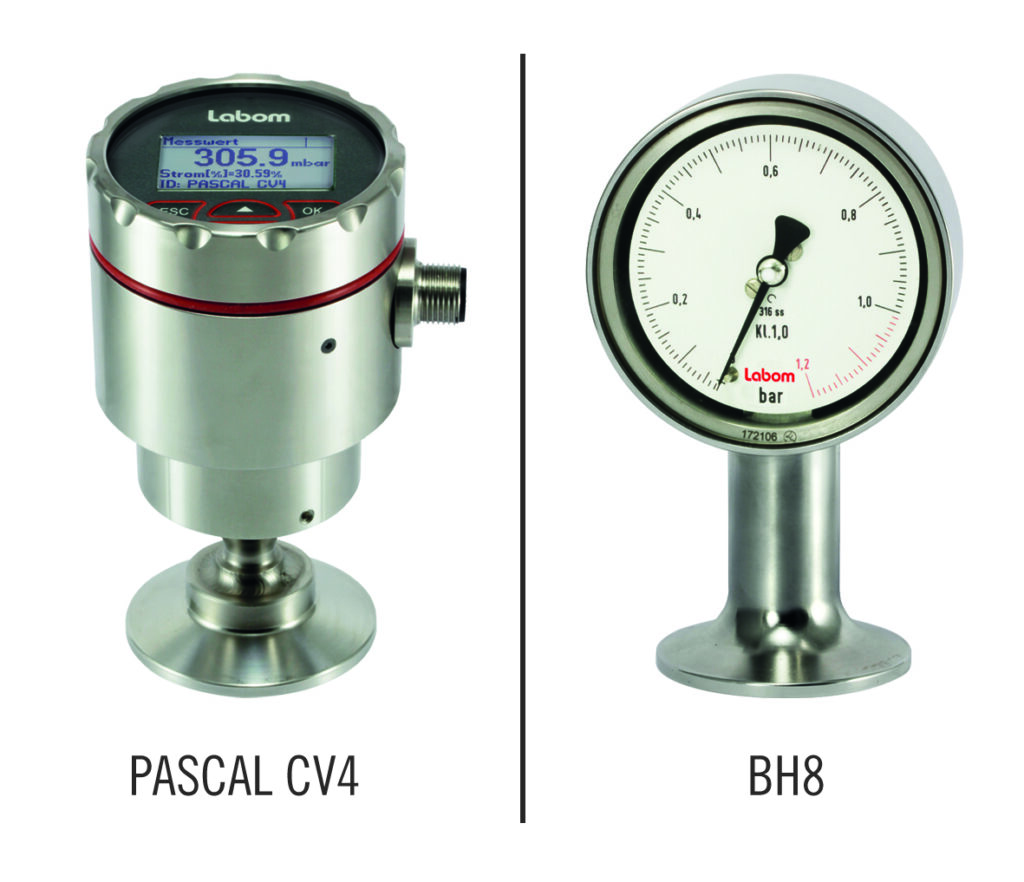
The PASCAL CV4 is also ideally equipped to meet the ever-stricter hygiene requirements: It can be combined with a selection of easy-to-clean hygienic diaphragm seals in a variety of sizes and designs. These process connections protect against product loss and ensure that the systems are easy to clean. Connections suitable for CIP and SIP make residue-free cleaning possible with designs that are free of dead spaces and excellent surface properties.
In addition to the PASCAL CV4, Labom offers a broad portfolio of temperature and pressure measuring devices with stainless steel housings, especially designed for the pharmaceutical industry. For example, the completely autoclavable mechanical pressure gauge BH8 and the resistance thermometer GA2610 with clamp-on technology, where the device does not even come into direct contact with the process media – there is no higher level of hygiene.





